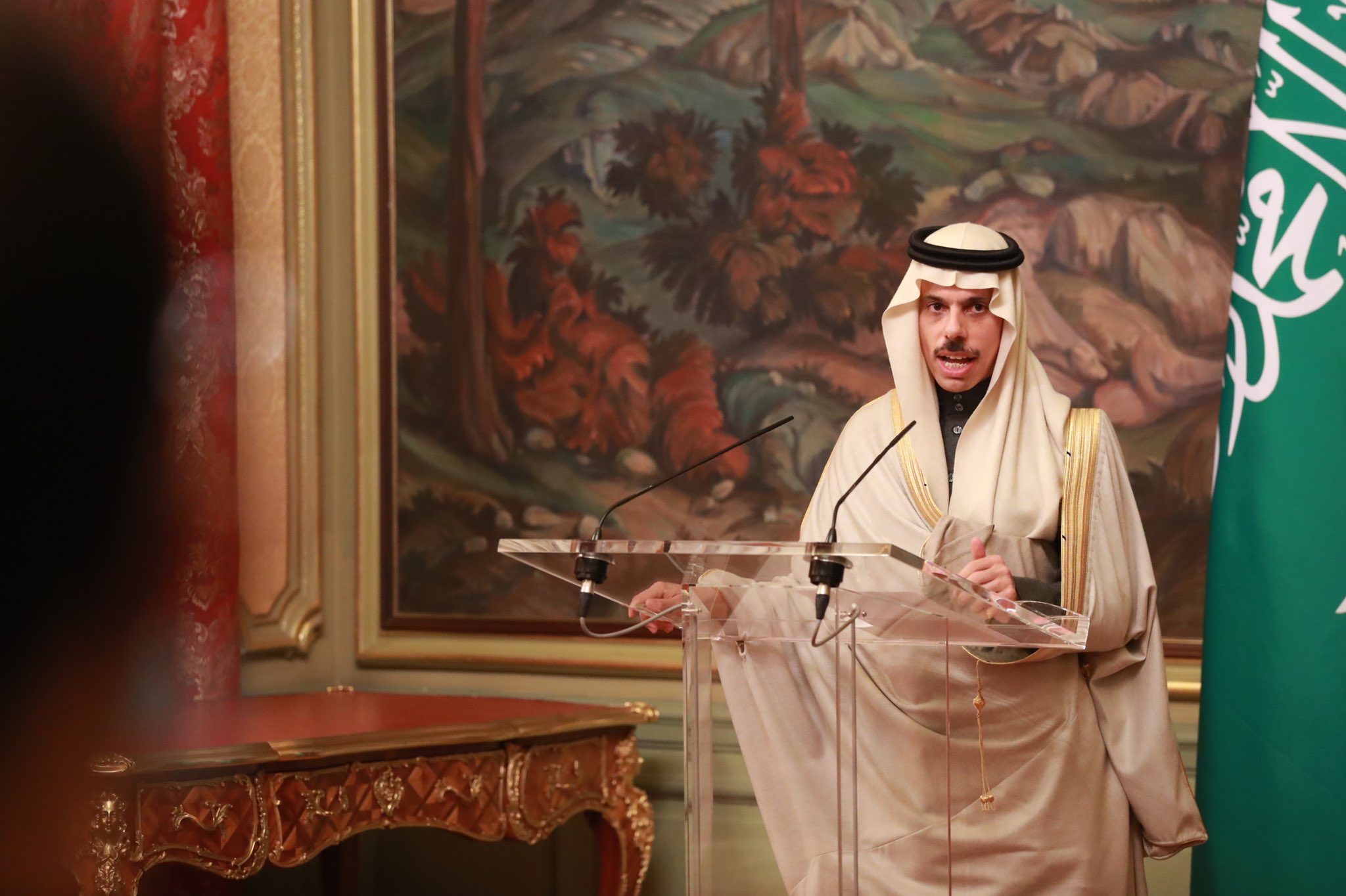The initiative, if approved by all Yemeni factions, would enable the import of fuel and food through the Hodeidah port, the country’s main entry point.
Qatar welcomed a new Saudi peace initiative that seeks to end the years-long war in Yemen, according to an official statement on Monday.
The Qatari foreign ministry expressed Doha’s “aspiration” for a “comprehensive” political resolution that would unite all Yemeni parties to ensure security, stability and prosperity in the war-torn country.
On Monday, Saudi Arabia’s Foreign Minister Prince Faisal bin Farhan Al Saud announced the new initiative to bring to an end the deadly conflict, starting with a “nationwide ceasefire” under the supervision of the United Nations.
Once implemented, it is expected to lift the 2015 Saudi blockade on the neighbouring state – reopening its air and sea links as well as Sanaa’s airport for “a specified number of direct regional and international destinations”.
The reopening of the Hodeidah port would enable fuel and food imports to enter the country, where millions are at risk of famine.
“While not entirely new, it’s not entirely similar,” Ibrahim Jalal, Yemeni security, conflict and defence researcher, told Doha News, referring to previous ceasefires.
“The Saudi proposal has additional measures, such as re-opening of the Sanaa Airport and easing the flow of traffic in exchange for Houthi compliance by the Stockholm Agreement, which weren’t part of their 2020 ceasefire,” he explained.
“Up to the Houthis”
The Saudi foreign minister said that the proposal will be implemented once all Yemeni sides approve, adding that “it is up to the Houthis now” to proceed with the initiative.
“We affirm the continued support for the Yemeni people and support all peace efforts in Yemen,” said the Saudi diplomat at a press conference.
According to Prince Faisal, negotiations between the Yemeni government – backed by Riyadh – and the Houthi rebels are expected to resume once the proposal is accepted.
Read also: Qatar condemns attack on Saudi Arabia’s Aramco facilities
“We hope that the Houthis will respond to our initiative to preserve Yemeni blood and to address the humanitarian crisis,” the Saudi official added.
However, the Houthi rebels said the initiative does not ensure the complete lifting of the blockade on Sanaa airport and the Hodeidah port.
“We expected that Saudi Arabia would announce an end to the blockade of ports and airports and an initiative to allow in 14 ships that are held by the coalition,” Houthi chief negotiator Mohammed Abdulsalam told Reuters.
The opening of the airports and seaports is a “humanitarian right” that “should not be used as a pressure tool, the Houthi official said, though the rebels are willing to continue engaging with Saudi Arabia, the US and Oman to reach a peace agreement.
However, Jalal said a Saudi withdrawal may not have the most desired effect.
“The pull-out of the coalition won’t resolve the conflict. It will reduce pressure on the Houthis, who perceive ceasefire as the suspension of air raids that constrain their ground operations,” the analyst said.
Pressure from Biden Administration
Meanwhile, the US also welcomed the latest proposal and called on all Yemeni parties to “seriously commit” to an immediate ceasefire under the UN’s supervision, deputy State Department spokeswoman Jalina Porter told a news briefing.
Despite several previous ceasefire attempts in the past, the latest initiative appears to be the pivotal point due to Joe Biden prioritising steps to end the war in Yemen.
Read also: What would a Biden presidency look like for Qatar, GCC region?
In February, the Biden administration announced it was halting its support for the Saudi-led coalition. The decision involves stopping arms sales to Saudi’s military, a move which reverses former US President Donald Trump’s policies that supported the coalition since 2015.
“The [peace] initiative resonates with the priorities of the Biden Administration, and in one facet seeks to mollify external pressure and shows who is interested in the continuity of war,” said Jalal.
Humanitarian aspect
From a humanitarian point of view, Afrah Nasser, Yemen Researcher at Human Rights Watch [HRW] believes that the ceasefire does not pay any attention to the human rights abuses of civilians.
“I think prosecuting the security forces that were responsible for serious human rights abuses, including international humanitarian law and basic humanitarian principles is key for durable peace,” Nasser told Doha News.
If the ceasefire is implemented, it should address the human rights violations on Yemenis, she said.
In 2014, the Houthis overran all government institutions in Sanaa and gained control of the city, forcing the internationally-recognised government to flee to Aden.
The Saudi-led coalition then launched a military intervention to push back the rebels in a bid to reinstate the government of Abedrabbo Mansour Hadi.
However, six years on, at least 233,000 Yemenis have been killed in the past six years, among them 131,000 who died as a result of malnutrition, lack of healthcare and medicine.
It is estimated that more than 16 million people will go hungry this year due to the dire conditions that have been imposed on the country due to the ongoing war.
It is also estimated that 400,000 Yemeni children below the age of five could die from acute malnutrition.
“Any ceasefire, any peace plan that includes lifting all restrictions against humanitarian efforts and ensures access for aid workers to reach civilians anywhere in Yemen, will benefit Yemenis,” added Nasser.
Follow Doha News on Twitter, Instagram, Facebook and Youtube







